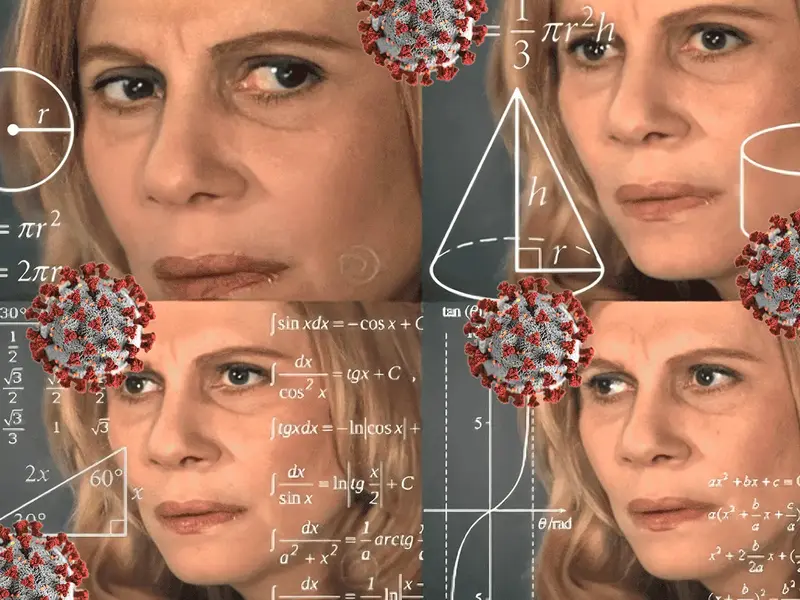Brain
Watch These Rats 'Dance' to the Rhythms of Mozart, Lady Gaga and Queen
Moving accurately to a song’s beat was long thought to be a skill unique to humans, but new research suggests rats can do it, too
What an Elephant’s Brain Reveals About Its Trunk
Elephants have tens of thousands of facial neurons, more than any other land mammal
Can a Musical Reminder Banish Bad Dreams?
Scientists hope that playing certain chords while sleeping can trigger positive memories and prevent nightmares
How Does Breathing Affect Your Brain?
Neuroscientist are piecing together how the rhythm of respiration influences everything from cognition to emotion
'Super-Agers' Might Have Super Neurons
Elderly people with exceptional memories have larger neurons in a brain area responsible for recollection
Has the Pandemic Changed Your Personality?
Research suggests younger adults’ dispositions shifted the most during Covid-19
Sniffing Out the Science of Smelling
From the lab to the art gallery, the latest efforts to understand the fragrant, musky, stinky and utterly baffling world of your nose
By Reading Brainwaves, an A.I. Aims to Predict What Words People Listened to
The research is a long way off from practical use, but researchers hope it might one day aid communication for people who experienced brain injuries
What's the Difference Between a Human and Neanderthal Brain?
One small variation in DNA may have helped Homo sapiens out-compete our ancient relatives
Woman Who Can Smell Parkinson’s Helps Develop a Skin Swab Diagnostic Test
The test, which would be the first of its kind for this disease, can make a diagnosis in about three minutes
Why Do Our Minds Wander?
A scientist says mind-wandering or daydreaming help prepare us for the future
Male Dolphins Have (Lots of) Wingmen
To find a mate, male dolphins work together in complex social networks that dwarf those of any other animal, except humans, study finds
Sleep Deprivation Could Make People More Selfish, Study Finds
Researchers measured charitable donations, looked at brain scans and conducted questionnaires to track changes in generosity
Why Does a Long Day of Thinking Tire You Out?
New research suggests the buildup of a molecule in the brain might play a role
What Can Dancing Cockatoos Teach Us About Ourselves?
An evolutionary biologist demystifies bird intelligence in an excerpt from her new book
Woodpeckers Don’t Have Shock-Absorbing Skulls
The birds’ small brain size protects them from getting concussions, a new study finds
This Wearable Sensor May Help Detect Concussions Early in Athletes
Researchers developed a small, flexible patch that sticks on the back of an athlete’s neck and can identify whiplash
The Curious Case of Charles Osborne, Who Hiccupped for 68 Years Straight
A 1922 accident sparked the Iowa man’s intractable hiccups, which suddenly subsided in 1990
Scientists Recreate Cleopatra's Favorite Perfume
Reconstructing the scentscapes of bygone civilizations is anything but simple
Why It’s So Hard to Make Risk Decisions in the Pandemic
Our brains weren’t built to do public health calculus like this, but following a few pieces of advice from the experts will help as you weigh your options
Page 5 of 21
:focal(1500x1014:1501x1015)/https://tf-cmsv2-smithsonianmag-media.s3.amazonaws.com/filer_public/b0/93/b093693e-9efc-474c-990a-528bd7fca249/gettyimages-79809863.jpg)
:focal(1061x707:1062x708)/https://tf-cmsv2-smithsonianmag-media.s3.amazonaws.com/filer_public/9f/c4/9fc48192-36b9-443b-aee8-3f33668bc70f/gettyimages-1271819220.jpg)
:focal(800x602:801x603)/https://tf-cmsv2-smithsonianmag-media.s3.amazonaws.com/filer_public/33/5b/335bac51-8373-439b-bd3d-9b1b8cbe1687/gettyimages-1403850293_web.jpg)
:focal(800x602:801x603)/https://tf-cmsv2-smithsonianmag-media.s3.amazonaws.com/filer_public/59/4c/594c42a7-c840-48f2-890c-dc248e002dd5/gettyimages-90955374_web.jpg)
:focal(1060x706:1061x707)/https://tf-cmsv2-smithsonianmag-media.s3.amazonaws.com/filer_public/00/85/0085b487-2768-4056-a064-6553152c329f/gettyimages-851261274.jpg)
:focal(1061x707:1062x708)/https://tf-cmsv2-smithsonianmag-media.s3.amazonaws.com/filer_public/ec/3a/ec3aa7b3-5aaa-45d7-ba03-ac8f860bd6fb/gettyimages-1213531529.jpg)
:focal(1170x880:1171x881)/https://tf-cmsv2-smithsonianmag-media.s3.amazonaws.com/filer_public/1d/80/1d80d4e3-987f-4657-a759-36ca78bfa2ad/opener-smell.jpg)
:focal(2130x2130:2131x2131)/https://tf-cmsv2-smithsonianmag-media.s3.amazonaws.com/filer_public/c4/cb/c4cbd945-debe-4a9d-b221-bd7dea474ade/gettyimages-158315247.jpg)
:focal(1900x1267:1901x1268)/https://tf-cmsv2-smithsonianmag-media.s3.amazonaws.com/filer_public/85/92/8592f31d-93ef-4bcb-a594-0da605925a5c/gettyimages-578070908.jpg)
:focal(1992x1328:1993x1329)/https://tf-cmsv2-smithsonianmag-media.s3.amazonaws.com/filer_public/f5/27/f527d459-c18f-41af-b4a0-db35e248c84f/pexels-mufid-majnun-7604586.jpg)
:focal(800x602:801x603)/https://tf-cmsv2-smithsonianmag-media.s3.amazonaws.com/filer_public/a5/8b/a58b6ad5-aabb-49b6-9565-941c9ce047f0/mind-wandering-1200px_web.jpg)
:focal(1061x707:1062x708)/https://tf-cmsv2-smithsonianmag-media.s3.amazonaws.com/filer_public/93/67/93679ec4-130c-4cbf-b9f5-174ca3bf71e1/gettyimages-530475316.jpg)
:focal(3135x2090:3136x2091)/https://tf-cmsv2-smithsonianmag-media.s3.amazonaws.com/filer_public/7d/51/7d516b19-1ad2-47a8-926f-6d87e4f70053/gettyimages-1262790546.jpg)
:focal(1061x535:1062x536)/https://tf-cmsv2-smithsonianmag-media.s3.amazonaws.com/filer_public/23/95/239547f4-2af6-4aa0-9bba-4d38ce2be2e3/gettyimages-1125577402.jpg)
:focal(800x602:801x603)/https://tf-cmsv2-smithsonianmag-media.s3.amazonaws.com/filer_public/5e/75/5e75cef3-8a88-48c5-b51f-95bad21eec66/gettyimages-459294944_web.jpg)
:focal(2248x1499:2249x1500)/https://tf-cmsv2-smithsonianmag-media.s3.amazonaws.com/filer_public/81/04/8104e377-6b9f-4be2-999a-6279cb962be0/gettyimages-1362781594.jpg)
:focal(2000x1333:2001x1334)/https://tf-cmsv2-smithsonianmag-media.s3.amazonaws.com/filer_public/8c/2d/8c2dade4-c059-48ec-a12a-14fd89d7731a/gettyimages-12404804331.jpg)
:focal(700x527:701x528)/https://tf-cmsv2-smithsonianmag-media.s3.amazonaws.com/filer_public/1e/98/1e989a5b-8755-4f57-8963-16f251a6d357/hiccups.jpg)
:focal(3034x1705:3035x1706)/https://tf-cmsv2-smithsonianmag-media.s3.amazonaws.com/filer_public/ec/16/ec1671ec-f23b-434b-a486-68b4721f90f6/gettyimages-1240562858.jpg)
